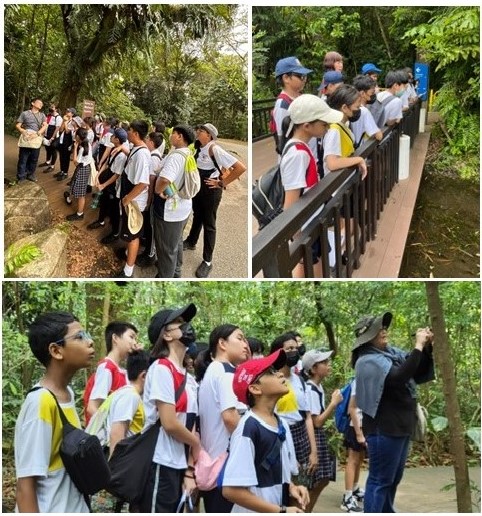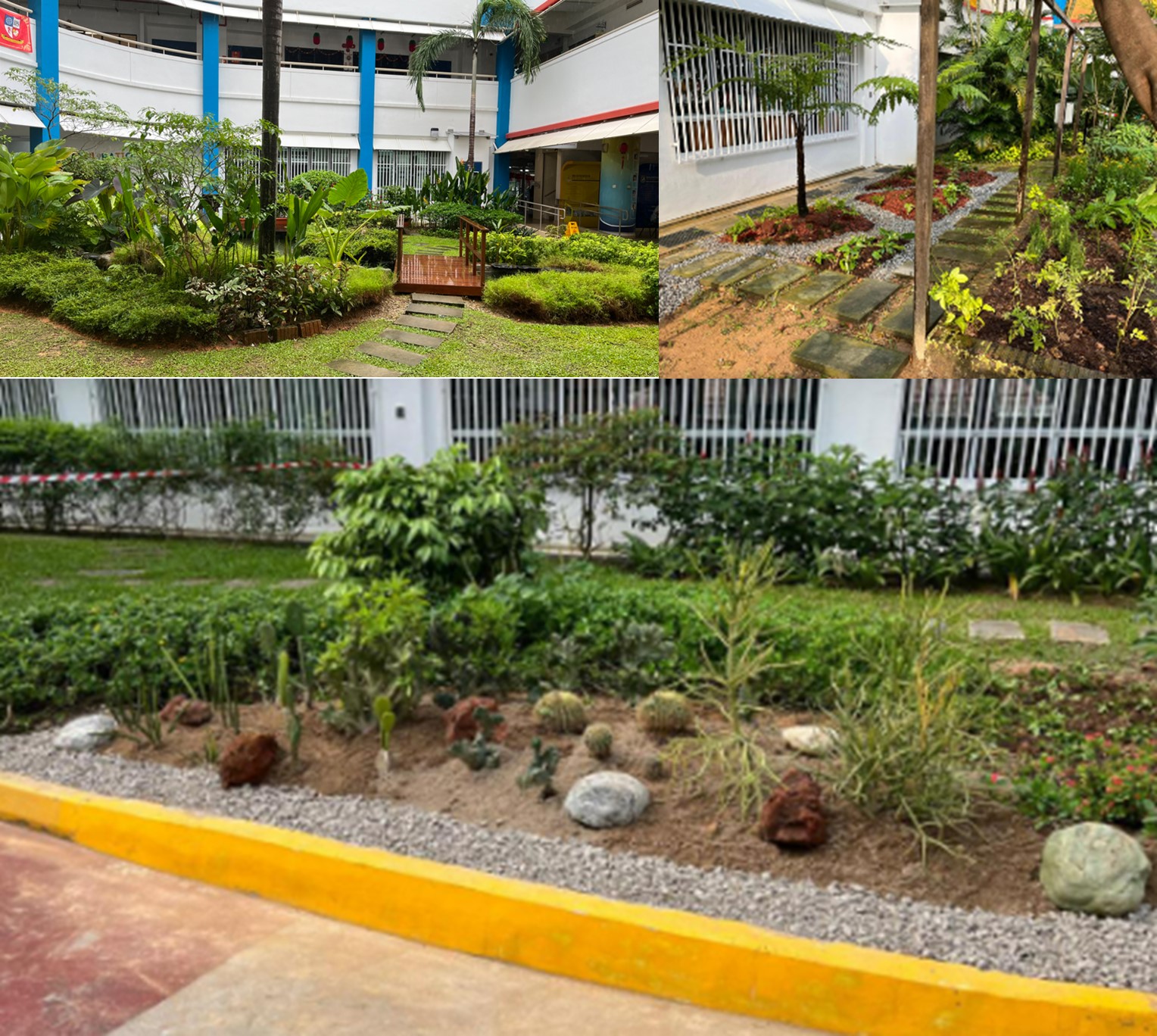Science
SCIENCE

Bendemeer Primary School follows the Science Curriculum Framework that guides all schools in the design and enactment of the school-based science curriculum.
The science department constantly strives to develop our students to be scientifically literate, so that they can make informed decisions and take responsible actions in their daily lives. Through the school’s inquiry-based science curriculum thar focuses on strong science fundamentals: Core Ideas of Science, Practices of Science and the Values, Ethics & Attitudes in Science, students have opportunities to be INspired by science, INquire like scientists and INnovate using science. The three INs can be achieved with teachers and partners facilitating students in their learning processes.
In Bendemeer Primary School, the science curriculum is planned based on the three aspects shown below (content, pedagogy and assessment), with each aspect linked to the others in a two-way manner.
.jpg)
Pedagogical Approach
.jpg)
In delivering the science curriculum, the department leverages on the pedagogy of “Science Play, Science Talk”. As shown above, this pedagogical approach is founded on the five elements of Science as Inquiry, highlighted in the Science Curriculum Framework.
Programmes
By adopting student–centric approach in our curriculum, pedagogy and assessment, the department strives to develop in our students the 21st Century competencies. Through the various programmes and activities planned by the department, students are presented with opportunities to use ICT tools as they collaborate and exhibit critical and analytical thinking skills.
In particular, the Science E2K programme engages students in scientific investigations as they seek to solve problems presented to them through the assigned tasks. It aims to foster scientific inquiry in students and help them develop science process skills. The programme also promotes key 21st century competencies such as resilience and resourcefulness, critical and inventive thinking, and effective communication skills.
The Science department also constantly look out for opportunities to enrich students’ learning in authentic settings. This included the hydroponics programme, through which the P3 students learnt a sustainable way to grow vegetables in a land-scarce country like Singapore.

The department also infused Environment Education elements into the Science curriculum with the aim of deepening conceptual understanding and promoting environmental stewardship by the students. With the easing of the safe management measures, the P6 participated in the Sungei Buloh learning journey at the end of Term 2. Through the learning journey, the students learnt the need to conserve mangroves, and the different forms of plant and animal adaptation in the mangrove community, among other learning objectives.

Resources
The school has two science laboratories that are fully equipped with apparatus and resources to facilitate the teaching and learning of Science. Science practical lessons are conducted in the two laboratories. To allow students to learn beyond the walls of the classroom, our school has a Science Garden and Science pond so that outdoor lessons can be planned for the students.

Useful Links
How Stuff Works - http://www.howstuffworks.com
National Geographic kids - http://video.nationalgeographic.com/video/kids/
National Geographic channel - http://video.nationalgeographic.com/video/national-geographic-channel

